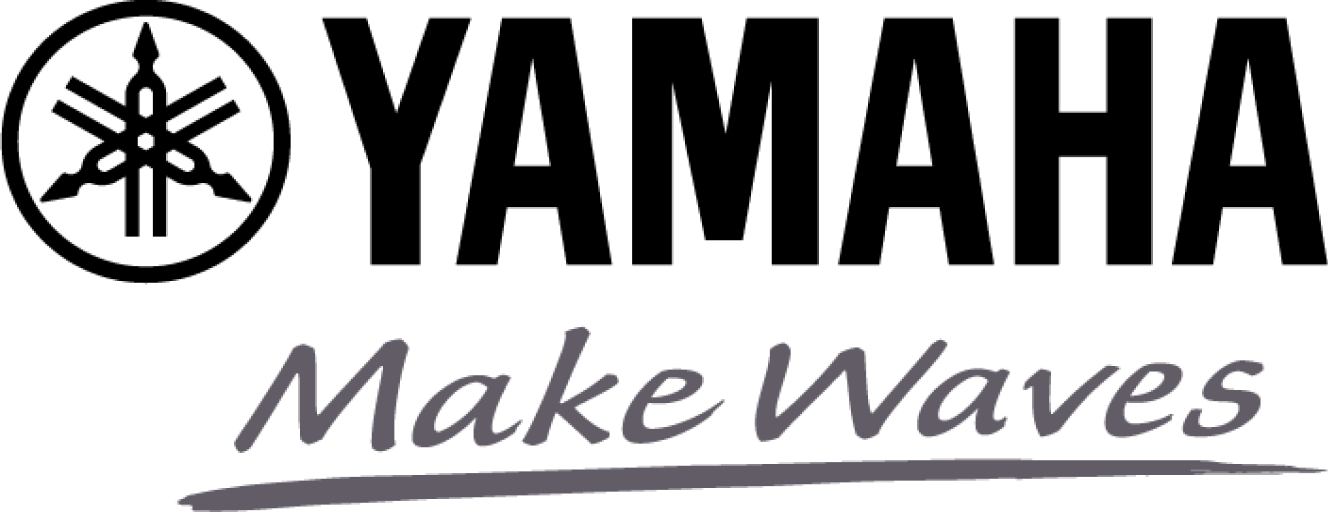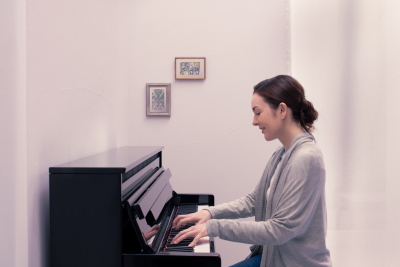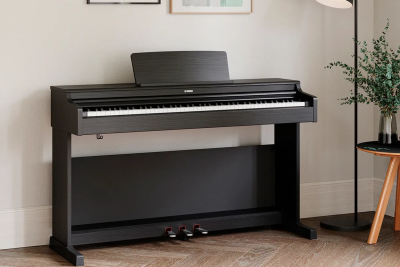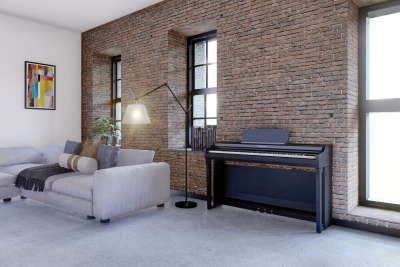Comparing acoustic and digital pianos involves evaluating various factors such as sound, touch, maintenance, cost, and additional features. Both types of pianos have their strengths and weaknesses, and the choice depends on your preferences, needs, and budget. Here's a guide to help you make an informed decision:
SOUND QUALITY

Acoustic Piano:
- Pros: Authentic and rich sound produced by vibrating strings and soundboard
- Cons: Sound can be affected by the piano's age, tuning, and environmental conditions
Digital Piano:
- Pros: Consistent sound quality with the ability to emulate various instrument sounds and offer headphone options
- Cons: Some players may find the sound less authentic compared to acoustic pianos
TOUCH AND FEEL

Acoustic Piano:
- Pros: Responsive touch with the feel of weighted keys and natural key action.
- Cons: Regular maintenance is required for optimal performance, and the touch can be affected by factors like humidity.
Digital Piano:
- Pros: Weighted and semi-weighted key options, often with adjustable touch sensitivity. Requires less maintenance.
- Cons: Some players may find the feel less authentic compared to acoustic pianos. However, advancement in technologies in this aspect has significantly reduced the gap. For instance, the Yamaha Clavinova Digital Piano comes with the acclaimed GrandTouch/GrandTouch-S Keyboards, which closely resemble the touch and feel of an acoustic or even a grand piano.
PORTABILITY
Acoustic Piano:
- Pros: Heavy and not easily portable. Upright pianos are less portable than grand pianos.
Digital Piano:
- Pros: Lightweight and portable, making them suitable for gigs, rehearsals, and smaller living spaces. There are, however, also some range/models that are most suited for home use and thus less portable like the Yamaha Clavinova Digital Piano.
MAINTENANCE
Acoustic Piano:
- Pros: Regular tuning and maintenance are required. May need adjustments due to environmental changes.
Digital Piano:
- Pros: One key advantage of a digital piano is the requirement for minimal maintenance. First and foremost, no tuning is needed for digital pianos, and they are not as sensitive to temperature and humidity changes.
COST

Acoustic Piano:
- Pros: When talking about costs, it is pertinent to consider the cost-to-benefit factor. Choosing an acoustic piano is frankly an investment in quality craftsmanship and materials.
- Cons: With that said, the outlay is generally more than purchasing a digital piano.
Digital Piano:
- Pros: Available at various price points, suitable for different budgets.
- Cons: Higher-end models with advanced features can still be costly, sometimes even more so than an acoustic piano.
ADDITIONAL FEATURES
Acoustic Piano:
- Pros: Pure acoustic experience without electronic components.
Digital Piano:
- Pros: MIDI connectivity, headphone jacks, built-in metronomes, and the ability to use different sounds (piano, organ, strings, etc.). With advancements in technologies, the functions, features, and connectivity options have also been improving by leaps and bounds with every iteration.
SPACE CONSIDERATIONS

Acoustic Piano:
- Pros: Grand pianos and upright pianos may require more floor space.
Digital Piano:
- Pros: Generally more compact in design and therefore more suitable for smaller living spaces. Ideal for modern apartments with space constraints.
TECHNOLOGICAL ADVANCEMENTS
Acoustic Piano:
- Pros: Traditional craftsmanship and timeless design.
Digital Piano:
- Pros: Continuous advancements in technology, with some range/models replicating the feel and sound of acoustic pianos more accurately.
CONCLUSION
Choose based on your priorities and circumstances. If space, portability, and versatility are crucial, a digital piano might be more suitable. If you prioritize the authentic acoustic experience and have the space and budget, an acoustic piano could be the better choice. Some players also opt for a hybrid piano, which combines elements of both acoustic and digital technologies. Testing different models in person before deciding is highly recommended.
If you are looking for a Yamaha Piano, you will be spoilt for choice. Yamaha offers a wide range of pianos, from Acoustic to Digital Pianos, and even the Hybrid Pianos. There is bound to be one that suits your needs and your budget. Check out our three Yamaha showroom conveniently located around the island and seek some personal recommendations from our friendly service staff.
- Yamaha Plaza Singapura
- Yamaha Thomson Plaza
- Yamaha Westgate
Store Locator: https://shop.sg.yamaha.com/store-locator/
#YamahaMakeWaves #YamahaPiano #YamahaDigitalPiano #Clavinova










